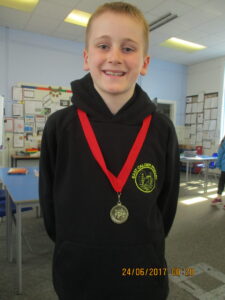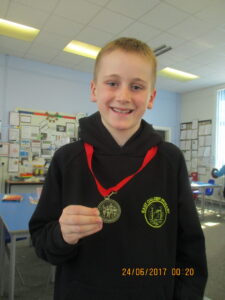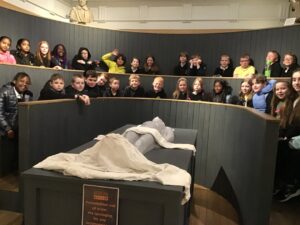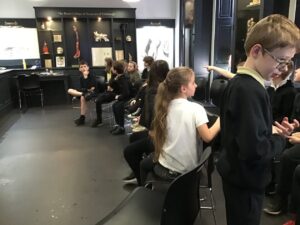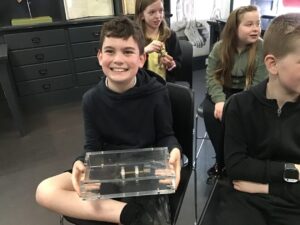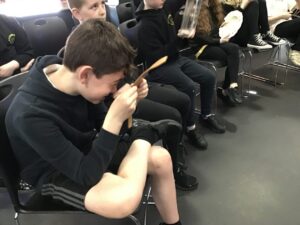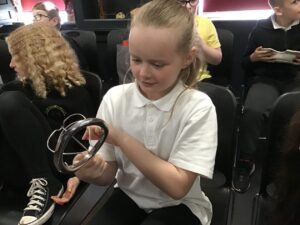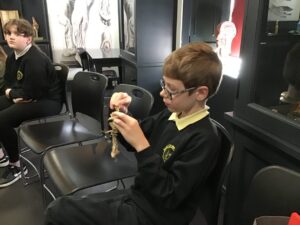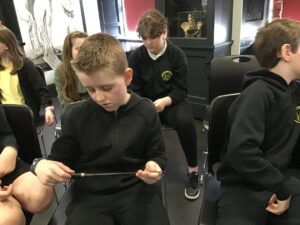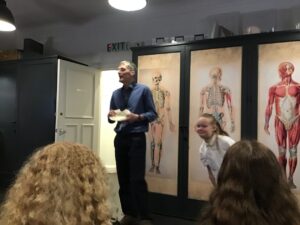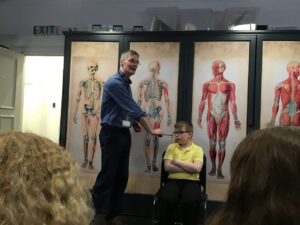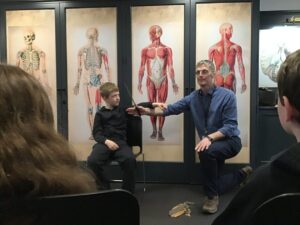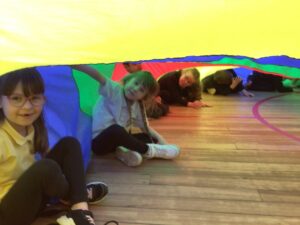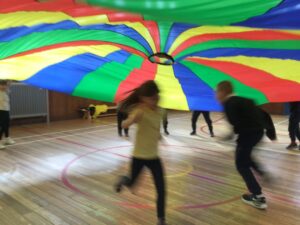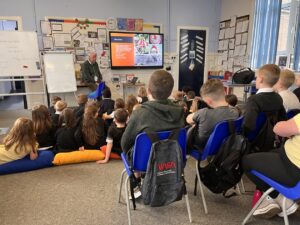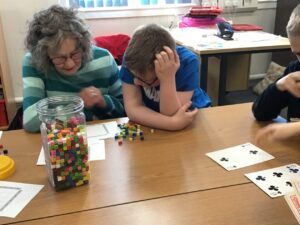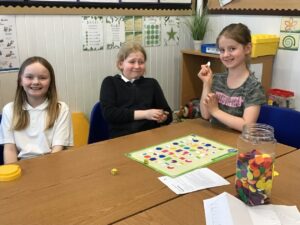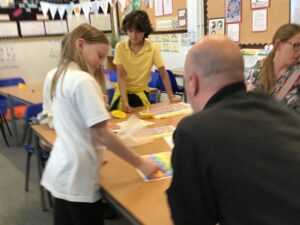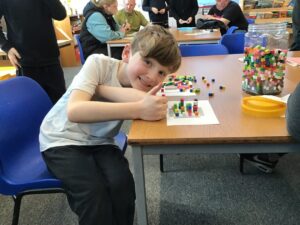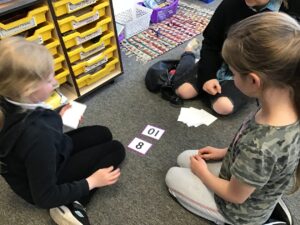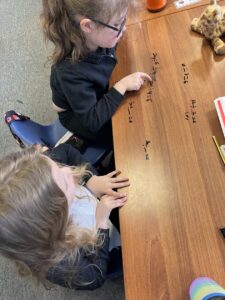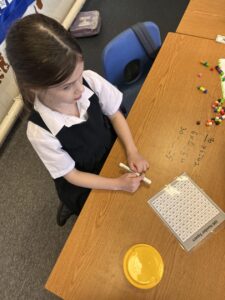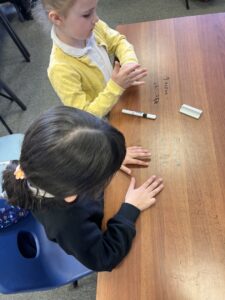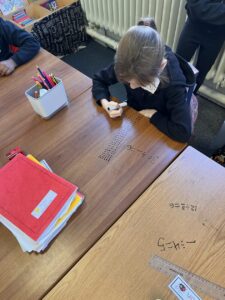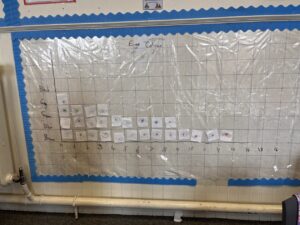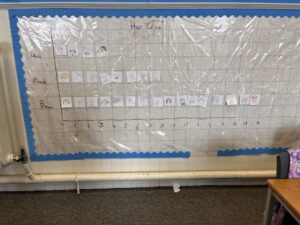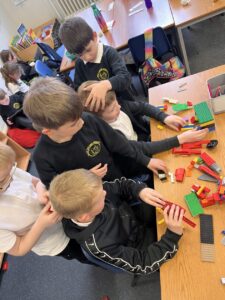Congratulations P6 for a fantastic effort at the Cross Country event today in Polbeth. You all did yourselves proud with everyone completing the course. It was great to see you all cheering each other on. Great sportsmanship! Special mention to this superstar who managed to finish 3rd. Considering there were 5 other schools competing that was some achievement!
P5 Trip to Surgeons’ Hall
Primary 5A and 5B went to visit Surgeons’ Hall Museum in Edinburgh on Wednesday.
We took part in a workshop to learn about how surgery was performed in the past and how this has helped to shape the procedures we are lucky enough to have today.
We handled some old instruments and had to guess what they were used for, then some lucky volunteers demonstrated what it would have been like to undergo certain procedures back in the bad old days – we all agreed we’d much rather have to go to hospital in this century than back then!
We then looked at some of the exhibits, including some hands-on robotics which allowed us to see what it is like when robots perform surgery.
Afterwards we enjoyed lunch outside in the sunshine before returning to school.
Everyone feels ready now to begin our new IDL context on Human Body Systems.
Learning in P2/1
Last week we were visited by a lady from The Dogs Trust.
‘We learned how to be safe around dogs’ Mia.
‘We should be quiet around dogs and if they have taken one of your socks or toys tell and adult. Be gentle, they don’t want cuddles, they want a wee stroke. Leave dogs alone when they are eating.’ Kayla.
‘We were seeing what kinds of buildings were in Main Street’ Mia.
‘We drew pictures of the buildings in Main Street. We made a pictogram to show the information.’ Alexus.
‘We were playing with the parachute in PE. We had to run underneath. We made a tent and sat underneath. We sat on it to hold it down.’ Fawn.
We had fun.
Primary 3
This week we have been working on our East Calder project. We listened while Alan Hamilton talked about his time in East Calder in the 60’s. It was very interesting learning about the history of our community. Then the P6’s joined us to build the community in 1935 or 2024. We used maps to help us. We also thought about what is in the community of East Calder now and created leaflets to tell tourists about it. Pop along to our celebration on 31st May to see all our work on the community then and now.
Sharing the Learning in P5A
Primary 5A were very excited to welcome parents and carers into class on Thursday afternoon. Pupils had chosen to share some of our maths and literacy games we use in class to support our learning in these areas, as many parents had asked about ways to support at home at our last Parent Consultations.
P5 had great fun showing parents a variety of games and challenges which can be used at home, and lots of parents showed their competitive side when playing against their kids!
We ended with a Kahoot! quiz to showcase our learning across the whole of this session – in the end it was a very close finish but Alex and his mum were the victors, well done to them!
Thank you to everyone who was able to attend, we all thoroughly enjoyed it.
This week in P2
This week in P2 we have been busy creating for our East Calder project all about East Calder Main Street. We have been creating some of the businesses and houses you might see on the street. We have created leaflets all about what you might see on East Calder Main Street. We were lucky to have Dog’s Trust in to speak with us about how to take care of dogs and keep them happy as well this week. It was great!
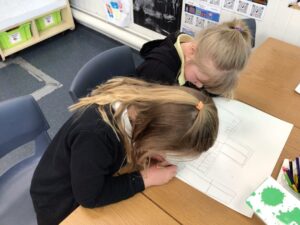
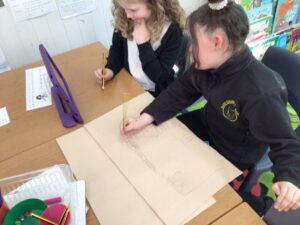
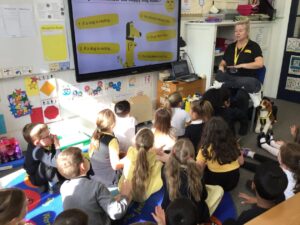
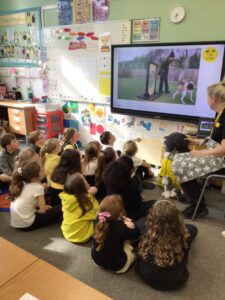
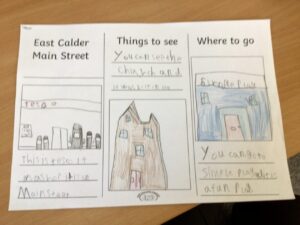
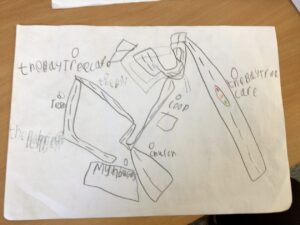
Nursery Newsletter – March/April 2024
Please click on the link below to access our most recent Nursery Newsletter
This Week in P2
It has been a busy week back from the Easter holidays in P2. We have been working on capacity in maths and measuring different sizes of containers to see what they would hold. We played maths games in numeracy to continue working on our addition and subtraction skills and we have enjoyed working on our handwriting on the desks.
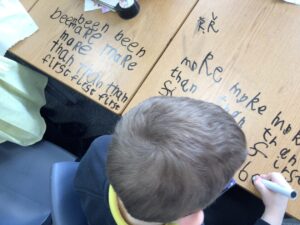
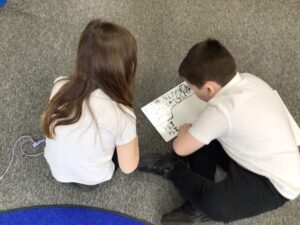
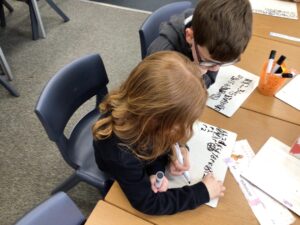
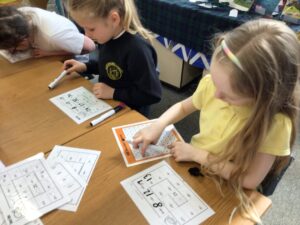
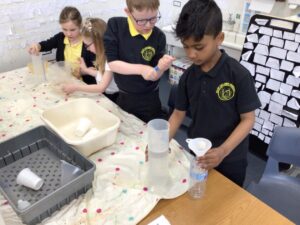
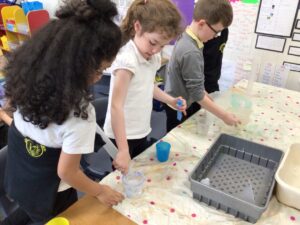
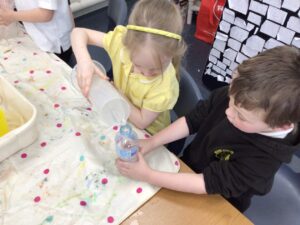
Primary 3 Learning
This week we worked with partners on our division. The calculations had missing numbers so we had to use our knowledge of family sums to work them out.
We started learning about Information Handling and made big pictographs showing our hair colour and then our eye colour. We then used the information to work out which colour was the most recorded and by how many more.
During Free Play some children have been playing barber shops and over the last few months have made a collection of razors. They spend their play taking turns to be the barber or the customer.
UNCRC – Silver Accreditation – Rights Aware
A huge well done and thank you to Miss Mannion and our Rights Respecting School Hub pupils, who today secured our Silver – Rights Aware award status. This is a fantastic achievement and we are all very proud.
Achieving this level means:
- We explicitly embed the UN Convention on the Rights of the Child in our policy, practice and culture.
- We promote knowledge and understanding of the Convention throughout our school community.
- We are seeing the positive impact of our actions on children and young people, staff, and on the school’s ethos, practice and environment.
- Our children see themselves as rights respecting global citizens and advocates for fairness and children’s rights, both locally and globally.

